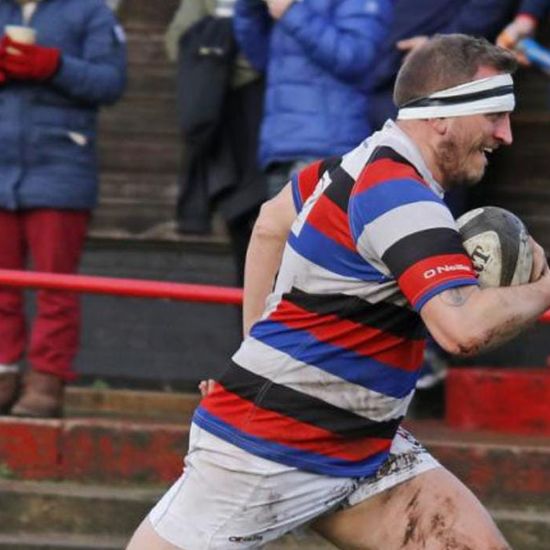‘I saw betting as a game of skill, rather than chance’ – former professional rugby player speaks out about gambling addiction
By Deirdre Barry
Copyright independent

Mark Potter (44) was a sports betting addict, and saw it as he did professional rugby – a game of skill, rather than chance.
“When you play sports to any level, you will have a level of competitiveness that means winning is great, and losing is terrible”, said Mr Potter, who compared the highs of playing professional sport with the adrenaline rush that gambling gave him.
“The higher up the sporting echelon you go, that becomes even more vital, and the more you are judged on success and failure. That’s really easy to take into other aspects of your life, said the former St Helen’s of Liverpool player.
“I took that into my relationship with gambling.”
Mr Potter described the “unbelievable feeling” of having success in betting, an activity which he said is meant to be done for fun.
“Whether it becomes about replicating the buzz of how good winning feels, or filling the void of what you’re not getting in sport, then it becomes different,” he said.
He said that there is an inextricable link between the traits of a sportsperson, and those of an addict, including the belief that practice makes perfect.
In 2013, Mark went to ‘Sporting Chance’, a clinic set up for athletes struggling with addiction, by former Arsenal captain, Tony Adams.
It was there that he learned to understand his gambling addiction, through four weeks of residential care, and twelve additional weeks of counselling.
Mr Potter was in attendance at Gambling Care conference on Thursday, where former GAA player and recovered gambling addict, Oisín McConville, chaired the panel discussion.
Panelists included Jackie Murphy, CEO, and Tom Hayes, Chairman of Gambling Care, Grainne O’Kane, Founder of the Wellbeing Consultancy, Margaret Nash, Manager of Bushypark Addiction Treatment Centre in county Clare, Pauline Campbell, CEO of Dunlewey Addiction Services, Belfast, Fergal Landy, CEO of the Family Resource Centre National Forum, and Nicola Keating, who has experience living with a problem gambler.
A theme that was carried by all speakers, was that of ‘affected others’ – the term used to describe the loved ones of those struggling with addiction.
Mr Potter spoke of how his parents had to bail him out of debt on many occasions, and being separated from his Irish-born children while receiving addiction treatment in Sporting Chance.
“You love this person, and you want to save them,” said Ms Keating whose husband battled addiction for years, and is now sixteen years bet free.
“While I was saving him, I was killing me,” she added when speaking about the strain it put on their relationship.
She recalled having suspicions that her husband was having an affair, such was the extent of his secretive behaviour.
One of the main findings from the 2024 annual report by the Gambling Awareness Trust was the prevalence of female gambling.
The study found that there was an increase in female support service users of 6pc between 2023 and 2024.
However, Ms Nash of Bushypark Addiction Treatment centre said that there are a lot of barriers to women accessing treatment.
“It’s very hard for women to leave to come into residential treatment, because a lot of them are carers,” she said.
In 2024, Gambling Care received over 4,000 calls to their helpline.



